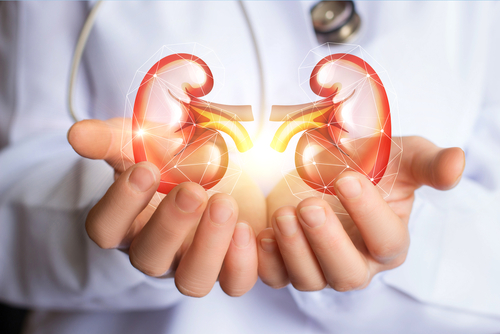
The kidneys are often thought of as the body’s waste disposal system. And for good reason—they filter toxins out of our blood, remove wastes, and turn excess fluid into urine. But when the kidneys become damaged, the system stops working as hard as it should. Toxins build up in the body, and eventually, you start to feel sick.
Chronic kidney disease (CKD) affects 15 percent of all adults in the U.S. But what is even more alarming is that 9 in 10 people do not know their kidneys are operating at less-than-ideal levels. Sanford Reikes, MD, a nephrologist at Summit Health, discusses what signs to look out for and how you can recognize kidney disease from the start.
1. Abnormal blood and urine tests
CKD typically does not cause symptoms in the early or even moderate stages. That is why Dr. Reikes says it is important to see your primary care physician regularly and have the recommended screening tests. Most of his patients found out their kidney function was impaired from a standard blood or urine panel.
“I often hear patients say, ‘I had no idea,’ and they really didn’t. When patients come to me in the early stages, they typically have no symptoms and have been going to the bathroom normally,” he says. “The tests are more sensitive than the symptoms.”
2. A coexisting condition
The majority of patients Dr. Reikes sees have other medical problems that cause strain on the kidneys. Diabetes is the most common, followed by high blood pressure. Over time, high levels of blood sugar or pressure damage the vessels that bring blood to and from the kidney.
“Because diabetes and hypertension are major causes of kidney damage, prevention of these conditions can significantly reduce your risk for chronic kidney disease.” Keep your weight in check, eat nutritious foods, and exercise regularly,” explains Dr. Reikes. “And if you do have diabetes or high blood pressure, keeping them under good control will help prevent kidney damage.”
3. Swollen feet
When the kidneys lose significant function, they can’t get rid of extra sodium and water. Fluid begins to accumulate throughout the body, which causes swelling, also known as edema.
"Anyone with unexplained swelling should check with their doctor right away,” advises Dr. Reikes. Staying hydrated, he adds, is critical for good kidney health. Unless otherwise directed by your physician, aim to drink 48 ounces of water per day.
4. Feeling sick
If CKD progresses to the most severe stage, waste products build up in the body and make you feel ill. Fatigue and loss of appetite are the most common symptoms. You may also feel nauseous, vomit, develop itchy skin, or have a metallic taste in your mouth. In advanced disease, patients experience mental slowing, often described as brain fog.
To keep the kidneys healthy, Dr. Reikes advises being cautious with over-the-counter anti-inflammatory medications like ibuprofen (Advil) and naproxen (Aleve). “Unless advised otherwise by your doctor, only take these medications for a short period of time, as needed, and never in excess of the recommended dosage on the bottle,” he says.
5. Blood in the urine
A healthy kidney keeps blood from entering the urine. If you see blood when you go to the bathroom or notice your urine is brown like cola, call your doctor.
The key to treating CKD is detection. Even though the condition is frequently irreversible, Dr. Reikes says the best way to help patients lead full, healthy lives is to keep the disease from getting worse. Treatments are often directed at controlling co-morbid conditions like diabetes and heart disease. Dialysis or kidney transplant may be considered in the most severe cases.
“The kidneys have reserve capacity so you can get by with some impairment,” he explains. “The goal is to keep the damage from getting worse.”
